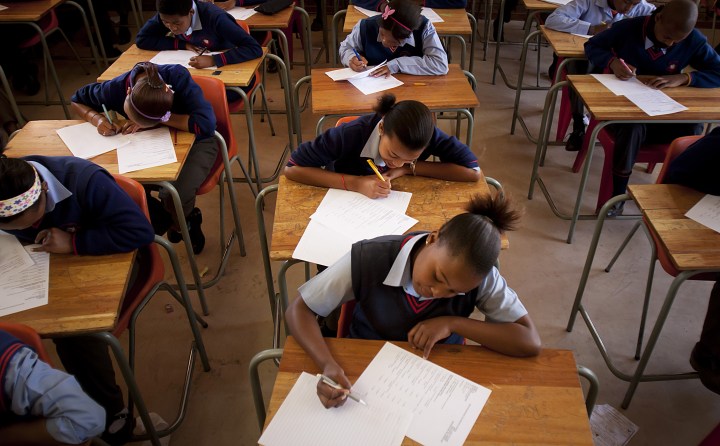Newsflash
‘All systems go for 2019 final matric examinations’ – Umalusi

The Council for Quality Assurance in General and Further Education and Training has approved three assessment bodies to administer the 2019 national senior certificate examinations to be held from 23 October to 28 November. This despite there still being some concerns.
“Regardless of the identified risks I can report to the South African republic that by and large our system is ready to administer the 2019 final examinations,” said Mafu Ramoketsi, Umalusi CEO.
Ramoketsi was speaking during a press briefing convened by the council on 10 October in Auckland Park, Johannesburg, on the state of readiness of assessment bodies for the 2019 national senior certificate examinations.
“The Council has conducted a thorough assessment of the readiness of the basic education system to manage and conduct the 2019 national examinations. To this end, the council is generally satisfied that all assessment bodies are ready to undertake this massive task,” Ramoketsi added.
The Department of Basic Education (DBE), Independent Examinations Board (IEB) and the South African Comprehensive Assessment Institute (SACAI) are identified as qualified regulated bodies tasked with administering the end-of-year examinations for 2019.
According to the council, DBE will administer exams for 790,405 learners (620,891 full-time and 169,534 part-time), while IEB registered a total of 12,179 learners, further split into 11,339 full-time and 840 part-time. Lastly, SACAI registered a total of 2,643 learners, with 2,073 fulltime and 570 rewrites.
Umalusi’s quality assurance assessment focused on eight key areas – management, registration of candidates and examination centres, school-based assessment, printing, packaging and distribution of question papers, conduct of examinations, marker selection and appointment of marking personnel, systems for the capturing of marks, and management of examination irregularities.
Of the eight areas of assessment, the appointment of marking personnel was flagged as a challenge with provinces like Eastern Cape, Gauteng and Northern Cape confronted with the greatest shortage of markers.
“Umalusi officials have highlighted with great concern evidence of shortage of markers in key subjects with high enrolments at the time of the audit in the following provinces: Northern Cape (Agricultural Sciences Afrikaans markers), Western Cape (History Paper 2), and Eastern Cape (English First Additional Language, Physical Sciences, Life Sciences and Afrikaans markers),” reads a statement released by the council.
Even though contingency plans are in place and have been addressed with the heads of department in each of the provinces, the council said the matter still required urgent attention.
Additionally, Gauteng is said to have a shortage of English Home-Language paper 3 markers, while Limpopo is running short of Afrikaans markers for those students who write their exams in the language.
Umalusi also found that of the 10,818 examination centres administered by DBE, 495 have been identified as high-risk. These are centres known to have a track record of cases for disappearing exam sheets, group cheating and exam paper leaks.
“We do have the number of risk centres in our records but we do not represent that to the public,” said Mary Madalane, senior evaluation and accreditation manager for Umalusi.
“If we say a centre is a risk, we do not want to encourage the culprits to know where that centre is as we will increase the risk,” she added.
The council also noted a decline in the number of learners registered for exams in some provinces in 2019.
KwaZulu-Natal registered 147,953 learners in 2019 compared to 151,932 the previous year. And Limpopo registered 94,563 learners, a decline from 98,834 in 2018.
Meanwhile, Gauteng registered 4,000 more learners in 2019, an increase from 107,168 in 2018.
The council also took the opportunity to endorse the much-criticised General Education Certificate (GCE) exit plan proposed by DBE.
“In principle, Umalusi supports the idea of a GEC, provided it is properly understood as a transitional qualification rather than an exit qualification,” Ramoketsi said. DM


















